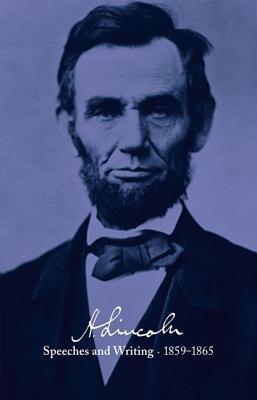
Speeches and Writings 1859-1865
Book Description
Words forged in the fires of a nation divided—this collection unveils the raw heart of civil discourse during one of America’s most turbulent times. Abraham Lincoln’s powerful speeches and poignant writings resonate with urgency, capturing struggle, hope, and the fight for freedom. Each page crackles with relentless passion, revealing the strategic mind and compassionate spirit behind a leader grappling with the weight of a fractured country. As tensions rise and the fate of the Union hangs in the balance, can eloquence and conviction pave the road to reconciliation? Discover the indelible mark of a voice that shaped history. What legacies are born from the struggle for unity?
Quick Book Summary
"Speeches and Writings 1859-1865" by Abraham Lincoln is a seminal collection that documents the wit, wisdom, and moral clarity of one of America's defining leaders during the Civil War. This anthology encompasses Lincoln's addresses, letters, and public communications from the tumultuous era as he navigated the Union through its gravest crisis. Through these carefully crafted words, readers witness the evolution of Lincoln's thought, his resolute opposition to slavery, his calls for unity, and his compassionate leadership. The collection reveals how Lincoln leveraged rhetoric not only to inspire and console, but also to persuade and guide. His legacy as a master communicator and a steadfast defender of liberty endures, offering insights into leadership, resilience, and national purpose.
Summary of Key Ideas
Table of Contents
Leadership in Crisis
Within the maelstrom of the Civil War, Lincoln's writings and speeches illustrate strong leadership amid unparalleled turbulence. As president, he shouldered the immense burden of preserving the Union while facing insurmountable political, military, and personal pressures. His communications with Congress, military leaders, and the public reflect a determination to maintain unity, even as he acknowledged the immense costs of conflict. Lincoln’s capacity to make momentous decisions—such as suspending habeas corpus and managing dissent—reveals a pragmatic leader striving toward justice while preserving essential constitutional values.
The Moral Imperative of Emancipation
Central to Lincoln’s thought was the moral imperative to end slavery. His speeches, most notably the Emancipation Proclamation and his correspondence, expose the intellectual and ethical struggle to reconcile the nation’s founding principles with the reality of human bondage. Lincoln carefully positioned emancipation as both a military necessity and a fulfillment of America’s promise, gradually preparing the nation emotionally and politically to accept sweeping social change. His words display a nuanced blend of idealism and realism, understanding that moral leadership meant moving with the people, but always pushing them toward a just cause.
The Power of Persuasive Rhetoric
The effectiveness of Lincoln’s rhetoric was unmatched. His skills as a writer and speaker mobilized support, articulated the stakes of the conflict, and soothed a grieving nation. Iconic speeches like the Gettysburg Address distill complex issues into enduring statements of purpose, highlighting the sacrifices made for liberty and equality. Lincoln mastered the art of persuasion, crafting concise arguments and memorable turns of phrase that inspired action, fostered loyalty, and appealed to shared values. His ability to communicate across divides cemented his place in history as one of America’s greatest orators.
Navigating National Division
Navigating a fractured nation required more than military or legal maneuvering—it demanded deep empathy and the pursuit of reconciliation. Lincoln reached out to both Northern and Southern audiences, emphasizing the possibilities of national healing and the dangers of vengeance. In his second inaugural address, he struck a tone of humility and forgiveness, urging “malice toward none, and charity for all.” His measured words helped set the groundwork for eventual reconstruction and offered hope that a new, unified nation could emerge from the ashes of war.
Legacy and the Meaning of Unity
The legacy of Lincoln’s wartime writings is profound and enduring. His insistence on unity, liberty, and the better angels of human nature continues to resonate. These texts not only steered the course of American history but also established standards for political morality, leadership, and eloquence. By threading moral conviction with pragmatic action, Lincoln’s voice became a beacon through the nation’s darkest hour, leaving an indelible mark on American identity and the ongoing struggle for freedom and justice.
Download This Summary
Get a free PDF of this summary instantly — no email required.





